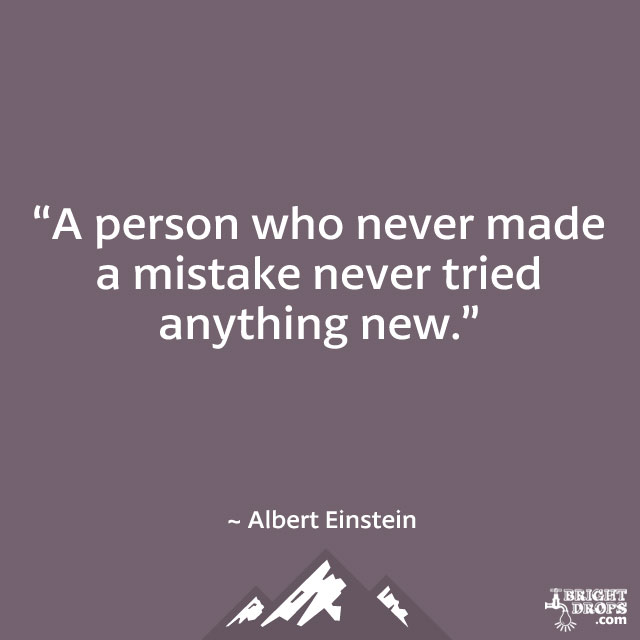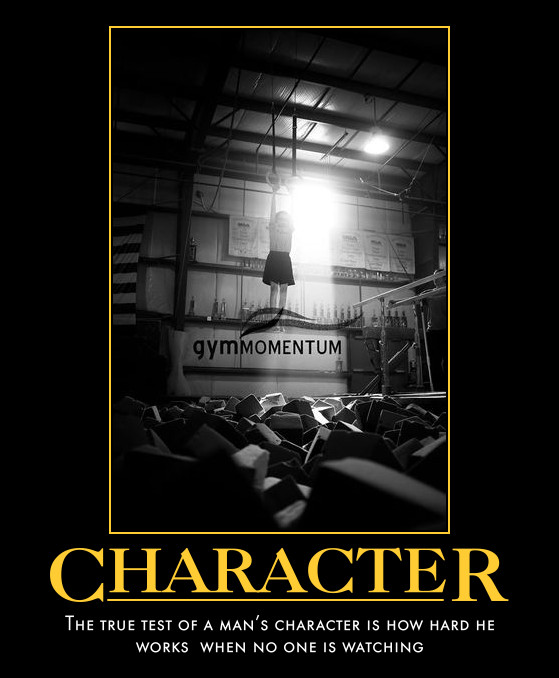Leadership.
I’m midway through “Congress Season”. More time spent on planes and in hotel rooms and conference rooms than at home. I had a great conversation with some coaches and club owners out in Region 4 on leadership.
What makes a good leader?
What do coaches want from their head coaches or owners?
What are some pitfalls that we need to avoid?
As leaders we need to move past mistakes. We will all mistakes.
- What keeps us from moving past mistakes?
- What causes our inaction?
I believe it is FEAR. We are afraid that if we move past our mistakes we will look weak. We are afraid that if we confront our mistakes people within our organization will not like us. Reality is that if we try to be loved by everyone, we will not be liked by anyone.
As a leader you need to be the moral center of your gym. If you can move past mistakes, your staff will be able to as well.
As a leader you need to be the integrity of your gym. You need to show the responsibility and be honest ESPECIALLY when no one is looking.
What does your staff want out of you?
1. Decisive leadership. Make a decision! You are the captain of this ship. Chose the direction and go! It is OK to consult your staff but in the end- a leader needs to lead.
2 . Kindness.
All employees need our kindness, and all deserve our kindness. We can give our employees too many “things” and we can award them “pleasures” they do not deserve, but these pleasures only serve to make them feel empty if they were not rightfully earned. When we show kindness with “perks” we nurture entitlement and laziness within our employees who later show poor motivational habits. What we can never give too much of is our kindness. Kindness is simple; it is nonmaterial and the feeling we give our employees of our acceptance and/or approval. People work harder for acceptance and approval more than anything else.
3. Faith.
Being a leader comes with pressure and doubt. We can get so caught up in fear we forget to have faith. Our belief in our staff will largely determine their faith in themselves. When our employees feel dominated or micromanaged by our fears about every new little thing they want to do, explore or experience our fears covertly communicate we do not believe in them. This covert message undermines our team causing them to either not believe in themselves or to rebel against the controlling nature of our mistrust. We must have faith in our employees and give them the rope they need to struggle, discover and succeed.
4. Confidence.
When our employees feel we are confident in them, they are naturally more confident in themselves. When we behave contentiously towards them, showing a lack of trust in their character or ability to make wise decisions we go against them positioning us on separate teams. We have to accept, as leaders, that our team members are different and unique people from us. We need to allow them the space to be different. We must trust we have lead them well enough for them to make mistakes, recover and do better next time. If we respond contentiously to towards their mistakes or decisions we slowly crush their own drives for self-improvement.
5. Patience.
Leadership is challenging because we have an idea of what we think is best for our company, our program or our team and our employees causing us to over-pressure them to be the image of what we hold. However, our coaches need our patience, not our pressure. They need for us to give them a little rope to come along at their own pace. Each employee’s development is on its own unique course. If they are not up to par in every area of work, adding pressure and control becomes defeatist. Patience communicates we believe, that in time and with enough practice, they will find their way. If we over-pressure we kill their spirits and perhaps even their motivation. We do not want to lead people who only feel valued if they are performing perfectly. They aren’t monkeys.
6. Affection.
Verbal affection, in the form of affirmation, is a great way to express support to our coaches. Our employees are going to go through the same hell in work and life just like anyone else. When we see them struggling it is not helpful for us to heap our own anxieties about their struggle onto them. We need to offer affection and understanding letting them know that “this too shall pass.” A little affection is that spoon full of sugar that helps the pain dissipate. Talk to your employees, offer them your ear and coaching. Do not shout at them.
7. Counsel.
Our role as leaders is to provide feedback to our employees which is conducive to the building of their character. When we criticize, yell, berate or become passive-aggressive our staff cannot grow. They will shrink and underperform or become enraged and develop negative feelings about themselves, their capabilities and about us. When we rob our employees of their pain and do not allow them the possibility of failure, we also rob them of their pursuit of success and happiness. Our employees need our counsel to understand that the most important part of life resides in the worthwhile struggle of discovering their own sense of meaning and purpose.
8. Compassion.
Each employee is unique and each needs something slightly different from us as their leader. They are not here to be like us, they are not here to be as-good-as or better-than their team members, peers or the employees of our competitors. When we compare our employees we are telling them they are not good enough. This undermines their incentive by making them feel a lack of their own personal significance. There is no comparison. You can only compare someone to themselves, and even then we all have bad times in life we wish to move past. If we use comparison, it should only be used as an example of how far our team has come from where they were before. Use compassion not comparison.
9. Guidance.
Our role as leaders is to give our team direction. It not our right to decide who they are supposed to be. As leaders we need to stay away from controlling, manipulating and pulling our employees away from their natural instincts and gifts. We must allow them to explore their own decision making processes in lei of us making decisions for them. If we show disgust or disappointment over their choices because they aren’t the choices we would have made then we are controlling. We must use guidance in place of guile.
10. Respect.
If you do not respect your employees, they will in turn learn not respect you. Like your gymnasts, your coaches will do as you do, not as you say. They are not going to respect you simply because you are above them in rank. If you ridicule them, they will ridicule and go against you. If you want to be respected by them, first respect yourself and show them what that looks like. It is through the respect given to them that they naturally learn to respect themselves and you. If you are emotionally immature as a leader and you rage, ridicule, tantrum or stonewall your team, you teach them to respond to you and to the job in that exact same way.
11. Time.
Your staff needs your availability, time and attention. There is no substitute for you. If you are the head coach never place your coaches in the position to have to bypass you and go to your boss for the attention they need. We are a working society and all have obligations, but our coaching staff must be priority number one. When they know their importance, there is a trickle-down effect where they will be motivated to make the customer come first. That is the truest form of success. Take care of your staff and they will take that same type of great care of the customer.
12. Have Their Back.
If you want your staff to have YOUR back, you need to make sure you have theirs. They are going to make mistakes. They are going to piss off some parents. Have their back. We all want a staff who would walk through fire for us. They need to see that we will take the heat for them. I have always said- Praise in public, Punish in Private. If someone screws up, I will sit them down in private. We will talk about it, come up with a plan and move on. When someone goes to bat for me (or the gym) or they go beyond expectations- I want to make sure everyone knows how proud I am of them.






